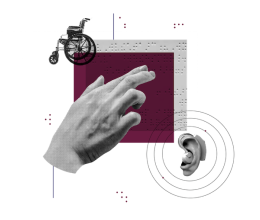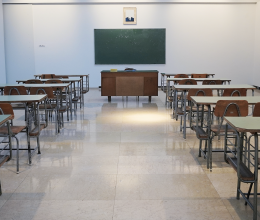The front page of today’s New York Times featured an excellent article titled “Seeing the Toll, Schools Revise Zero Tolerance.” It spoke to a growing movement by school administrators in big cities to reconsider "zero-tolerance" policies and other "tough on crime" approaches in light of the effects that they are having on today's young people.
For many years the ACLU has been committed to challenging the "school-to-prison pipeline," a disturbing national trend wherein children are funneled out of public schools and into the juvenile and criminal justice systems. Zero-tolerance policies are not the only factor driving the pipeline, but they are certainly a major part of the problem. By criminalizing minor rule infractions and increasing the police presence in schools we have put far more students in contact with the criminal justice system than necessary.
Given the abysmal record of the criminal justice system when it comes to treating minorities fairly, it should come as no surprise that students of color are especially vulnerable to push-out trends and the discriminatory application of discipline. According to the New York Times, "more than 70 percent of students involved in arrests or referrals to court are black or Hispanic, according to federal data."
If you'd like to learn more about the school-to-prison pipeline and what the ACLU is doing to combat it, check out this resource at ACLU.org.
It's encouraging to read examples in today's Times article of administrators in America's biggest cities reconsidering "zero-tolerance" policies and moving instead to more restorative practices. Here in Maine we helped pass an anti-bullying law last year that included a section with suggestions for alternative discipline strategies such as peer mediation or counseling. These are small steps, but they add up.
If we continue to push back against overly-punitive systems that lead to unnecessary arrests of young people we can begin to stem the tide and reverse the direction that the country has been on over the last couple decades. Personally, I like the sound of a "prison-to-school pipeline" a lot more than the current alternative that we're stuck in.






